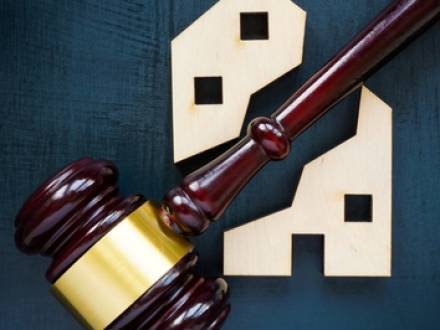Can I Keep the House in an Illinois Divorce?
 For many people, the family home is more than just real estate — it represents belonging and stability and houses many nostalgic memories. If you are going through a divorce and hope to keep your home, you are not alone. Whether this is possible depends on several legal and financial factors, including how Illinois courts handle the division of marital property.
For many people, the family home is more than just real estate — it represents belonging and stability and houses many nostalgic memories. If you are going through a divorce and hope to keep your home, you are not alone. Whether this is possible depends on several legal and financial factors, including how Illinois courts handle the division of marital property.
An experienced Illinois divorce attorney at Law Office of Ronald L. Hendrix, P.C. can help you understand your rights, evaluate your financial position, and advocate for a property division agreement that protects your interests.
Is the Home Considered Marital Property?
The first step in determining whether you can keep the home is establishing whether it is marital property. In Illinois, marital property includes most assets acquired during the marriage — regardless of whose name is on the title or mortgage. This means that even if the home is in your name alone, it may still be subject to division if it was purchased during the marriage.
Some homes are considered non-marital property, such as those you inherited, received as a gift, or owned before the marriage. However, if marital funds were used to pay the mortgage, make improvements, or cover maintenance, a portion of the home’s value could still be subject to equitable distribution.
Will Having Children Affect Who Gets the House?
If you and your spouse have minor children, the court will prioritize their well-being. Judges often seek to preserve stability for children, which may include allowing them to remain in the family home. This could lead to the home being awarded to the parent with the majority of parenting time.
That does not mean your spouse will receive nothing in return. Illinois uses a system of equitable distribution, which aims for fairness — not necessarily a 50/50 split. If you are awarded the home, your spouse may receive other marital assets, such as a larger share of retirement accounts, vehicles, or investment property.
Can You Afford the Home on Your Own?
Even if the home is marital property and the court finds it appropriate for you to keep it, your ability to afford it matters. You will likely need to take full responsibility for the mortgage, property taxes, insurance, and upkeep. In many cases, you will need to refinance the home in your name alone. This removes your spouse from any financial liability moving forward, but not all lenders will approve a solo refinance, especially if household income is significantly reduced after divorce.
What Are Your Options for Buying Out Your Spouse?
If the home has equity, you may be able to buy out your spouse’s share. This can happen in one of two ways:
-
You refinance the mortgage and use the funds to pay your spouse their share of the equity.
-
You keep the home and give up other assets of comparable value as part of the overall property division agreement.
Your attorney can help you evaluate the best approach, taking into account your financial goals and long-term stability.
Talk to a Naperville, IL Asset Division Attorney Today
Keeping your home in a divorce is possible — but it requires careful planning and legal strategy. At Law Office of Ronald L. Hendrix, P.C., our Will County, IL divorce lawyer will help you understand your rights, assess your financial options, and fight for an outcome that supports your future. Attorney Hendrix brings a deep understanding of both the legal and emotional aspects of divorce. As a court-appointed mediator with a Master's degree in guidance and counseling, he offers a compassionate and strategic approach to every case.
Call 630-355-7776 today to schedule your free consultation and take the first step toward protecting your home and your peace of mind.

















